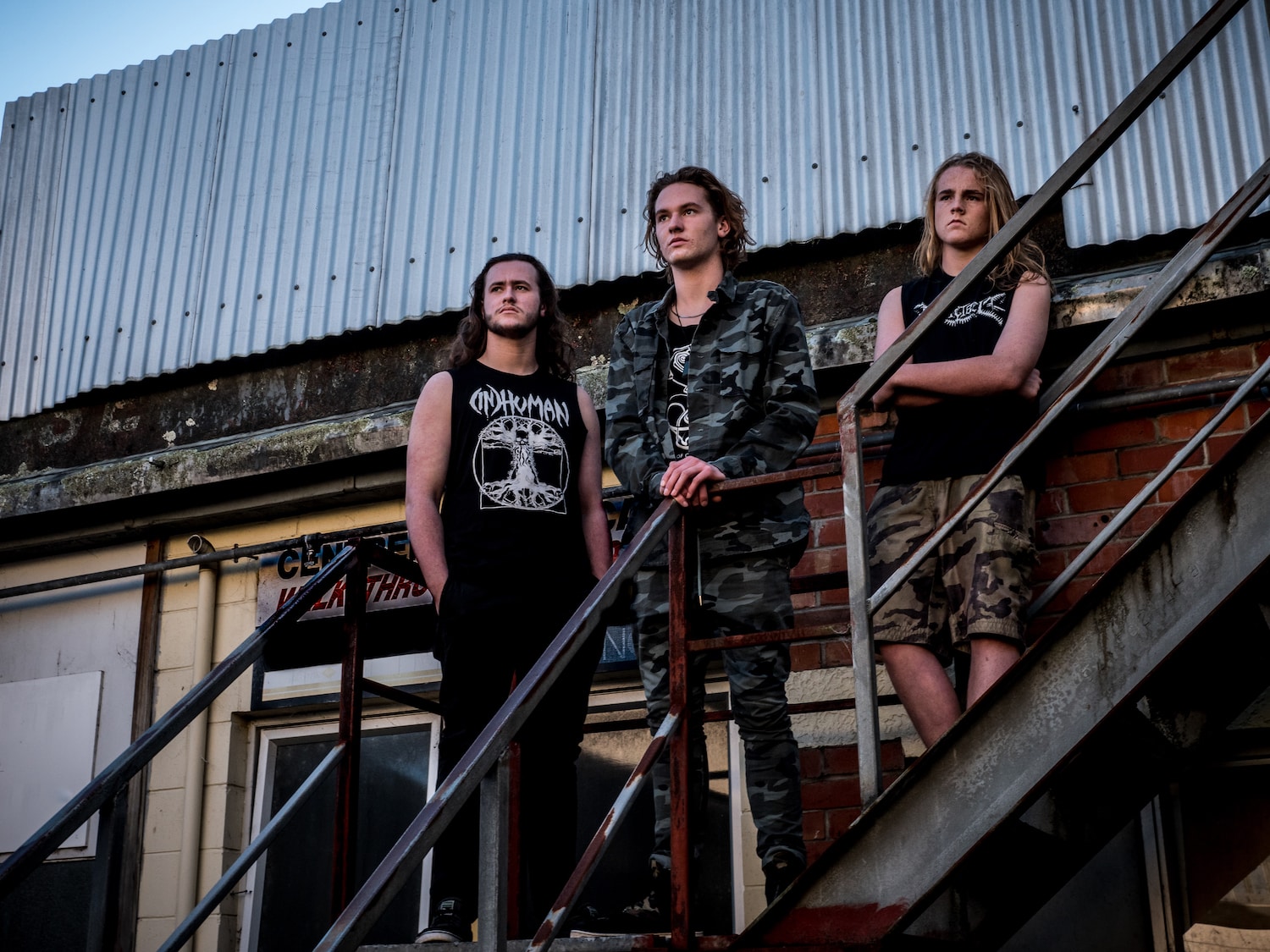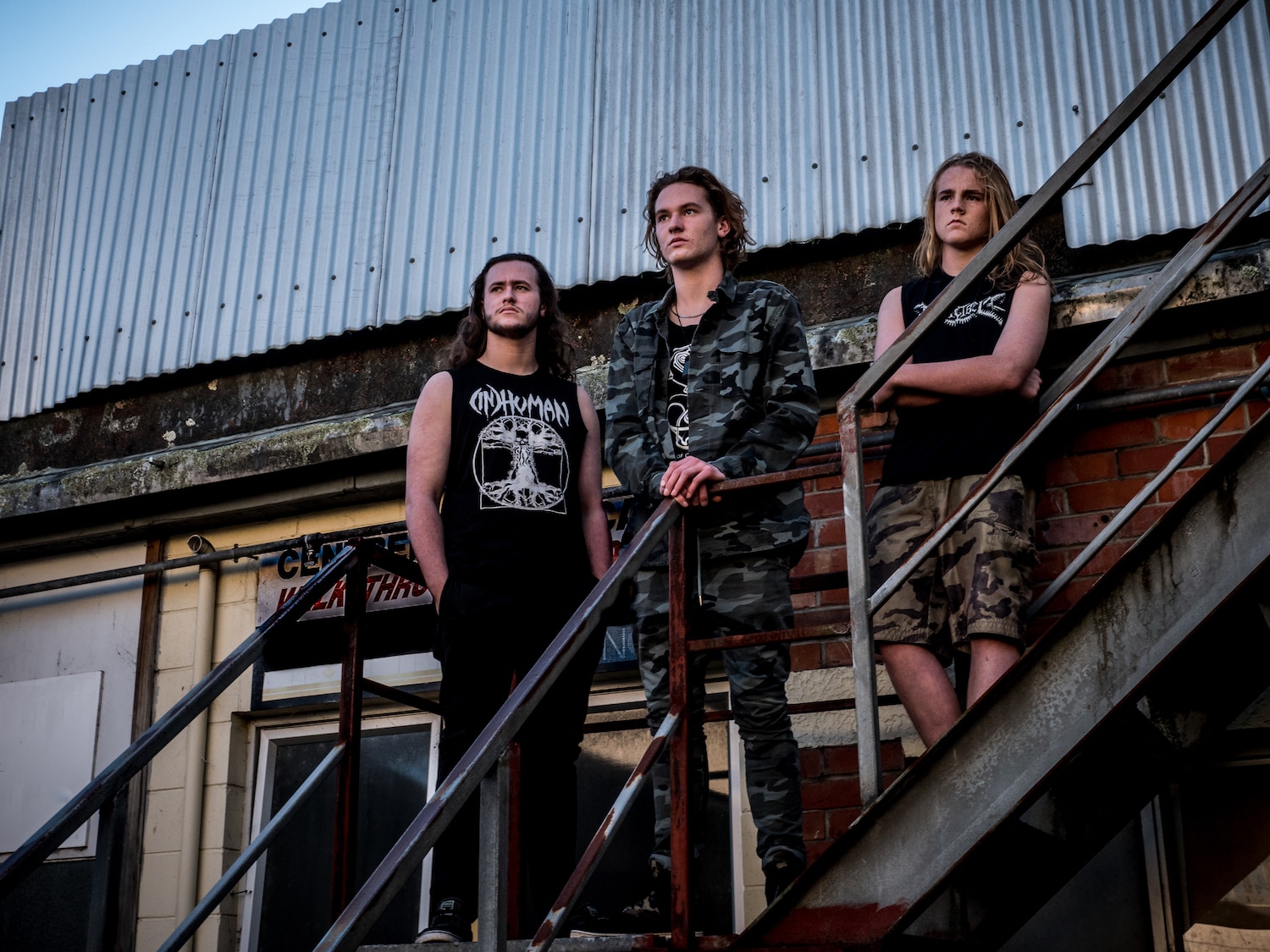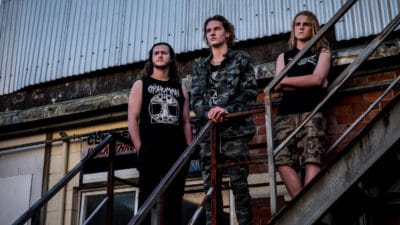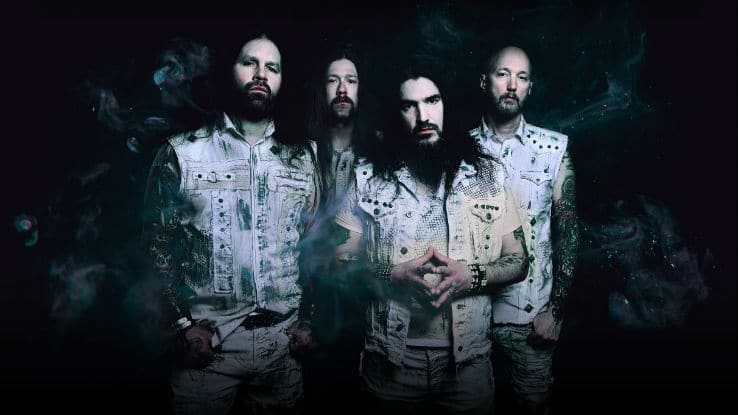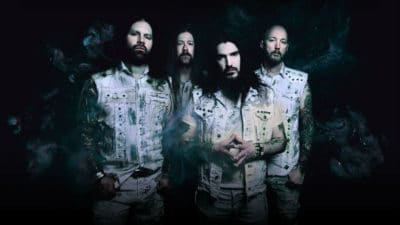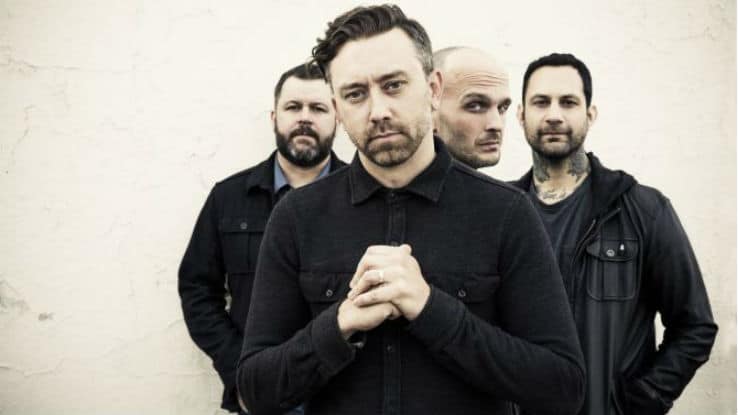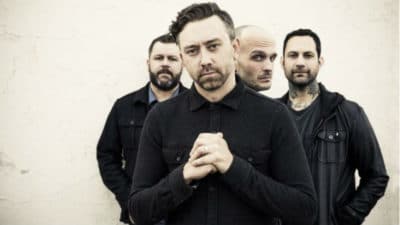Music
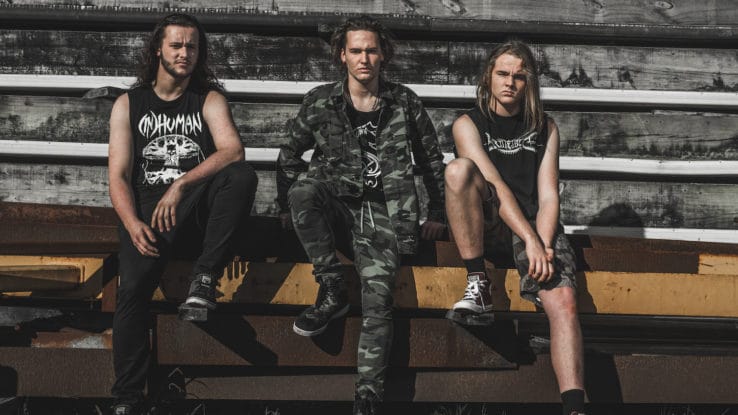
Interview
Alien Weaponry on keeping New Zealand’s history alive
We chat with Waipu thrash metal trio Alien Weaponry ahead of their huge homecoming tour in March.
Northland thrash metal trio Alien Weaponry are fighting to keep New Zealand’s tradition, history – and most importantly language – alive.
Through their music – sung predominantly in Te Reo Māori – they share important stories about our country’s past, stories that have been passed down through generations.
The band was formed in 2010 by brothers Lewis and Henry de Jong, who were 8 and 10 years old at the time. Since then they’ve been taking the world by storm, playing at some of the biggest metal festivals across Europe and bringing their music to stages right around the world.
Before Alien Weaponry take on a huge homecoming tour next March, we chat with the band’s drummer Henry de Jong to get to know a little bit more about this trio of wunderkinder.
Let’s take it back to the beginning. How did Alien Weaponry originally get together?
Alien Weaponry started as me and my brother Lewis jamming in our lounge, and it escalated from there. About two years after we started doing it, we moved up to Waipu and met Ethan. He was only recruited as bass player because he was the only kid who could actually reach the end of the bass guitar when we had our friends over.
When did Alien Weaponry first start exploring and learning about New Zealand’s history?
I’ve always been learning about it off my Dad, who is extremely knowledgeable about New Zealand history. He is full of stories and knows pretty much what happened at every major pass site in New Zealand, and he’s been a real inspiration for us to be writing in Māori and writing about the historical battles.
Alien Weaponry sing in both Māori and English. Why is it so important for you and the band to keep language as part of your music?
Since we were born, the Māori language has been dying out. There’s a lot of efforts at the moment to try and keep it alive. People are doing everything they can, but it’s sad because only three per cent of New Zealand’s population speaks Māori even though it’s an official language of New Zealand, and our Indigenous people are Māori.
We want to change that. We want to inspire people to either learn Māori or at least learn about their past and learn about where they come from as well as what’s happened in New Zealand.
How did you decide to include those historical elements in your songwriting?
It’s just what felt right. When we started writing in Māoro we were trying to go with a haka vibe, and a lot of hakas are based off history and stories from the past that talk about great courage, sacrifice, and triumph. We wanted to keep that going. When we wrote Rū Ana Te Whenua– which is about the Battle of Gate Pā – that was the vibe we were trying to get with it.
What other topics or places do you draw inspiration from when you are songwriting?
For us, it’s anything that we’re very passionate about. We’ve got songs on the album that are about social conformity and PC culture, as well as songs that are literally just being angry at a teacher. When we write lyrics, we just write what we’re passionate about, it’s how we feel music should be.
Why is metal the perfect style of music to tell these stories?
I think it’s the fact that metal requires no censorship. If we were playing pop or reggae, putting the ugly stuff into the lyrics might not work as well. But with metal, you don’t have to censor any of your lyrics, you don’t have to sugar-coat it, in order to make it sound nice or make people like it. Something we’ve always loved about metal is that you can be very direct and free with the message you’re sending with the music.
Now that you’ve done quite a few big tours overseas, have you found that your combination of storytelling and language keeps you connected to place, and to home when you’re travelling overseas?
When we were overseas, we did notice that when we were getting a little bit homesick, we were starting to sing Māoro songs that we all knew and started doing real New Zealand stuff, it was quite comforting. To be so far away from home, but still have that to take you back a little bit when you’re feeling a bit homesick. For us, it’s definitely something that keeps us connected with our country and who we are, and I think it’s a really awesome thing. It would be a good thing if more people had that for themselves.
How have you found people reacting to your music, both at home and overseas?
The reaction has been really amazing. New Zealanders love it, there’s a lot of people messaging us saying, “You guys are really inspiring, and I started learning Māoro because of you guys,” as well as people overseas just being amazed by it.
Considering with the All Blacks and the haka, that’s usually the only thing most people have ever seen of New Zealand culture. For them to see haka used in a different context other than rugby is, I think, a little bit mind-blowing for them.
“We want to inspire people to either learn Māori or at least learn about their past and learn about where they come”
What does it mean for you and the band when you have people coming to you and saying that they’re taking more of an interest in learning the language and learning about New Zealand’s history because they heard your music?
Honestly, it means the world to me. I grew up speaking Māoro, and that was something that came in really handy at several points in my life. It’s quite sad that we’re currently sitting at three per cent of the population who can actually speak Māoro here in New Zealand, even though it’s an official language and the indigenous language of the country.
Hearing from young people saying that they’re much more interested now that we’re putting it in our music is a really, really awesome feeling, and I don’t want that to stop.
On your recent European tour, you played one of the biggest metal festivals in the world, Wacken Open Air. In Australia can only dream about the size of metal festivals in Europe, but what was that experience actually like?
It was really quite insane. Something we said while we were over there was, “If you take all the metalheads at the festival and compared them to how many metalheads are in New Zealand, you’d still have more metalheads at the festival.” There was that many people there, I think it was 85,000 people.
It can be a bit much at times, it took ages to get everywhere, but when we played, it was probably one of the best experiences of my life, and I don’t think it’ll ever stop being one of those best experiences, because it was that amazing. It felt good to finally play there after six years of dreaming about it.
You’ve had a lot of incredible experiences already, but overall what is it that you love about making music and that keeps you going back?
It’s like a rolling freight train; once it gets started, there’s no stopping it, and I have no intention of trying to stop anything, because this is awesome, and I love doing this, and we’re all really happy doing what we’re doing.
The fact that we’re able to do this and actually sort of make a living out of it – at least when we’re touring, we’re able to keep ourselves fed, which is always nice. Doing this and seeing people’s reactions to it, and sharing our work with the world, is one of the best feelings you can ever have. I don’t ever want to stop making music, and I don’t ever see myself doing that.
Alien Weaponry will take over venues around New Zealand throughout March 2019. Tickets are available through our partner website Ticketweb.co.nz.




